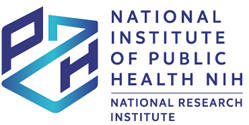Association between added sugar consumption in foods and beverages and body mass index among adolescents in university southern Thailand: a cross-sectional study
1
Department of Community Public Health, School of Public Health, Walailak University, Nakhon Si Thammarat 80160, Thailand
2
Food Technology and Innovation Research Center of Excellence, Walailak University, Nakhon Si Thammarat 80160, Thailand
3
Department of Food Science and Technology, Faculty of Agro-Industry, Kasetsart University, Bangkok 10900, Thailand
Publication date: 2024-04-18
Rocz Panstw Zakl Hig 2024;75(1):5-11
KEYWORDS
ABSTRACT
Background: Excessive consumption of added sugar is an essential contributing factor to weight gain in adolescence, leading to non-communicable diseases.
Objective. The aim of this study was to evaluate the added sugar consumption in foods and beverages and determine the association between free sugar consumption and BMI status. Material and Methods: This cross-sectional study was conducted among 280 adolescents in university (18-22 years) recruited from undergraduate students at different schools. The information was acquired using a 24-hour dietary recall questionnaire. Adjusted binary logistic regression analysis was used to assess the associations between added sugar consumption in foods and beverages and nutritional status. Results: Half of the participants had a BMI status in the normal range (51.8%). A large percentage of adolescents had eaten staple food only two times and did not have breakfast (49%). Additionally, most of the student did not eat a snack or drink beverages (57.7%). Consumption of vegetables, fruit, meat, and milk was higher in obese subjects than other groups. The results showed that adolescents consumed more added sugar (79.2%) than is recommended by the WHO. The majority of added sugar consumption were beverages (46.5%). The findings revealed that added sugar consumption among undergraduate students did not differ significantly depending on BMI. Conclusions: This study indicated that added sugar consumption in university students exceeded the WHO recommendation, although there was no discernible difference in BMI status. The results would be useful for further study and may help dietitians provide appropriate nutrition education or campaigns to reduce added sugar consumption in Thai and Southeast Asia university students.
Share
RELATED ARTICLE
We process personal data collected when visiting the website. The function of obtaining information about users and their behavior is carried out by voluntarily entered information in forms and saving cookies in end devices. Data, including cookies, are used to provide services, improve the user experience and to analyze the traffic in accordance with the Privacy policy. Data are also collected and processed by Google Analytics tool (more).
You can change cookies settings in your browser. Restricted use of cookies in the browser configuration may affect some functionalities of the website.
You can change cookies settings in your browser. Restricted use of cookies in the browser configuration may affect some functionalities of the website.



